“I hate my job… but it seems like no careers interest me right now.”
This dilemma can be paralyzing, leaving you unsure of where in the world to turn next.
In this straightforward guide, we’ll tackle this common issue by evaluating what fundamentally drives you, tapping into latent interests, and finding the connection between your career and life goals.
And don’t worry — this isn’t about chasing some “perfect” job or trying to be successful in someone else’s eyes. This is all about your unique path to future career fulfillment.
Key Takeaways
-
-
Fulfilling careers align with your core values, interests (even ones you’ve forgotten about or never explored), and lifestyle needs. This requires self-reflection and exploration of personal motivations.
-
-
-
The “dream job” myth can lead to unrealistic expectations; real satisfaction comes from career paths that offer growth, align with personal values, and provide purpose.
-
-
-
Action through volunteering, education, networking, and trying new things can help build confidence on your career discovery journey.
-

Discovering What Drives You
Starting your search for an interesting career begins with understanding what motivates you. This is tough if you’ve been in the same job for years and haven’t felt motivated in a long time.
It also involves some soul-searching into your world. That goes beyond just figuring out your interests. It’s about assessing your core values, identifying your passions, and understanding your lifestyle needs.
Let’s analyze each of these elements in detail.
Personal values guide us toward a meaningful career. Some examples of personal values that can influence career choices include:
-
-
Leadership
-
-
-
Creativity
-
-
-
Helping others
-
-
-
Continuous learning
-
Reflection exercises like journaling and meditation can help you determine your core values. Looking back at times when you felt fulfilled or motivated can also shed light on what you value most in the world.
Click to read more about how to find your purpose and passion.
In addition to values, we all have hidden interests waiting to be discovered.
Whether they’re things we used to love doing or things we’ve never tried, these interests can be a treasure trove of potential career paths. For example:
-
-
Art
-
-
-
Fitness
-
-
-
Helping others
-
-
-
Cooking
-
-
-
Writing
-
-
-
Playing music
-

But how do you discover your interests — especially if you’re too exhausted from work to do much on evenings and weekends?
Start with some easy prompts:
- What does a flow state feel like to me?
- When was the last time I was in a flow state (either at work or in a personal interest)?
- Can I think of any themes that foster a flow state? (Examples include topic, task type, environment, time, day/date, related input [e.g. on days I get dressed, on days I exercise midday, on days I eat breakfast] …)
- What things am I good at (either at work or outside of it)?
- Of those, what do I ENJOY doing?
Your lifestyle needs also influence your ideal career direction.
-
-
Do you prefer a 9-to-5 job or are you more productive at night?
-
-
-
Do you like to travel or are you a homebody?
-
-
-
Are you motivated by money or do you value other things more (e.g., flexibility, independence, environment)?
-
While these questions on their own won’t reveal your perfect career path, they’re a big part of the equation.
That’s because balancing your career with your lifestyle needs is essential for job satisfaction. If you could find a future career that complements your life — instead of bending your life to fit your career — you might feel less stressed and more in control.
Overcoming the Dream Job Myth

We’re often brought up believing in a perfect career that aligns with all our interests and passions. We’ll know we’re destined for it from childhood — or we’ll end up with a mesmerizing story about how it dawned on us one day.
But the reality? Most people work because they have to, not because they’re in love with their jobs.
However, this doesn’t mean that we can’t find satisfaction and purpose in our jobs.
The key is understanding that a fulfilling career isn’t necessarily about finding a perfect job. Instead, it’s about discovering work that aligns with your personal values, offers room for growth, and fits with (or even helps to create) the life you want.
The Pressure of Finding a Perfect Career
The journey towards identifying the perfect career path can be daunting and intimidating. It requires careful consideration and self-reflection, and there’s immense pressure to “get it right.”
This pressure may come from societal expectations (like the idea that we should all hone leadership skills and pursue management roles). But it can also come from family members and even ourselves.

Somewhat ironically, the quest for the best career can lead to stress and anxiety.
Just know that every job has challenges and setbacks, and your definition of a successful future is your own.
Instead of seeking perfection, focus on finding potential career paths that align with your values, interests, and lifestyle needs.
And remember — a choice isn’t a life sentence.
If that choice doesn’t feel aligned later in life, you can choose again.
Embracing a Journey Mindset
Career satisfaction isn’t something you achieve — just like happiness, it’s a practice, not an outcome.
So instead of fixating on an end point, focus on the experience. This is what we call a journey mindset. It’s about appreciating the journey at least as much as the destination.
Embracing a journey mindset in your career allows you to tackle challenges, learn from setbacks, and appreciate the effort you put in. Instead of getting discouraged that you haven’t reached a certain goal or milestone by a particular point, appreciating the experience lets you continuously reinforce that you’re on the right path.

Unconventional Paths to Satisfaction
Career satisfaction is a spectrum — and a highly personal one. There are so many different sectors and different careers because there’s a wide array of needs in this world, and because everyone is naturally good at different things. No one career offers universal satisfaction to everyone.
If conventional careers and job titles don’t appeal to you, consider alternative paths like freelancing, starting a business, or doing something uncommon that brings you joy.
For example, freelancing allows you to choose projects that align with your own interests — and set your own hours. Using my past experience, I chose to become a freelance content creator for brands while getting Lucy Todd Coaching off the ground.
Leaving my full-time job during this process, while controversial, was absolutely the best decision for me!
Self-Discovery Through Action
Introspection is critical in your self-discovery journey. But at a certain point, you need to take action to keep moving forward.
Volunteering lets you get hands-on experience in new careers without commitment. You can:
-
-
Learn new skills
-
-
-
Make connections in various industries
-
-
-
Explore different career paths
-
-
-
Discover which ones resonate with you
-
Although it can be difficult to find the time and energy, it’s a practical and fulfilling way to explore different careers. Start small — many opportunities only require a few hours at a time.
Education is another way to explore new careers. Online platforms like Coursera and Udemy offer a wealth of courses across various disciplines. This provides ample opportunities to learn something new and potentially discover a new career path.

Networking lets you gain first-hand knowledge of various careers, industries, and roles while developing technical skills.
Networking events, LinkedIn, and professional associations are all excellent platforms for meeting industry professionals. By speaking with experts or conducting informational interviews, you can:
-
-
Learn about the challenges and rewards of different roles
-
-
-
Gain insights into various careers
-
-
-
Expand your professional network
-
-
-
Get an outside perspective with advice and guidance from experienced professionals
-
All of this can help you make informed career decisions.
Challenging Your Comfort Zone
It’s vital to explore new experiences when assessing careers. This involves tackling the fear of the unknown, expanding your horizons beyond your current job, and embracing curiosity and openness.
It’s natural to feel apprehensive about venturing into unfamiliar territory. However, overcoming this fear is essential for career development.
Remember: curiosity fuels exploration and discovery, while openness allows you to embrace new experiences and perspectives.

You can’t leave your old career without trying new things. Mindset shifts take practice, but a coach can provide inspiration by helping you identify areas of passion and challenge your limiting beliefs.
Consider attending workshops or taking courses related to different careers. Shadow professionals in other industries and even try part-time job opportunities in a new field. These experiences can provide valuable insights.
Professional Help Options to Identify Your Career Path
Although self-discovery is a personal journey, professional assistance can offer significant guidance and support. But how do you choose between coach vs. mentor? And what role can a career quiz play? Let’s explore.

Career Coach, Career Tests, and Mentors
Career quizzes and tests can generate inspiration about your passion, interests, skills, and personality. But use these tests wisely!
Remember, each career quiz is generic and doesn’t take into account your unique qualities or experiences. Use quizzes and personality tests as tools for exploration, but always listen to your intuition and personal insights.
Mentors are a free resource for career exploration. A mentor can provide advice, share experiences, and offer guidance based on their own career journey. They may be a former boss or colleague or a respected figure in your community.
Since mentorship is unpaid, it’s important to understand what level of time and energy your mentor can pour into you — and if that’s enough to help you feel supported.
Career coaching provides bespoke support tailored to meet your specific career interests and goals. The right coach can provide a unique perspective. They may help you assess your strengths, identify what you’re interested in, set realistic career goals, and offer guidance and support throughout your career journey.
Whether you’re feeling stuck in your current job or unsure about your path, a career coach can help you navigate your career journey with more clarity and confidence.
Curious if working 1:1 with a coach is right for you? Learn more or schedule a free call!
Building Confidence Through Small Wins
Whether mastering a new skill or receiving positive feedback at work, every small win is a step towards building confidence in your career journey.
Start with small, achievable goals, and gradually work your way up. This will not only build your confidence but also create a sense of accomplishment and motivation. When you set the bar too high, your goals seem too far out of reach — and you’re likely to lose steam or give up entirely.
Don’t forget to celebrate your progress, no matter how small! Celebration contributes to your confidence and creates momentum when motivation might otherwise wane.

Work on building resilience through challenges and setbacks. Trying new things means learning what works as well as what doesn’t. You won’t succeed at everything — and that’s important data. What wins were you most proud of? What losses were most crushing? The best wins and most painful setbacks are both valuable clues about what really matters to you.
Summary: Find a Career Through Self-Discovery
In summary, finding a fulfilling career is a journey of self-discovery. You’ll work on overcoming the myth of the perfect job, taking actionable steps, stepping out of your comfort zone, seeking professional help, and building confidence through small wins.
This journey involves twists and turns, ups and downs. But with self-discovery, resilience, and a bit of bravery, you can find a career that really fits you.
No Careers Interest Me: Frequently Asked Questions
What do I do if no career interests me?
If no career interests you, you might be idolizing jobs too much (see also: the “dream job” myth, below!). You might also be out of touch with your passion, or burnt out. So don’t push too hard — move at your own pace.
When you have some energy, consider trying an affordable resource to assess your priorities and discover what you’re truly interested in. When you have a little more, explore volunteer and training opportunities, look at any role models in your life, and put yourself out there with networking.
Why do I have no interest in my career?
It’s normal to feel disinterested at work. You might be burnt out, going through a rough patch at work, or pushing through something tough in your personal life. Mental health challenges can cause you to lose interest in just about everything.
But it’s also possible that your career isn’t the right fit for you. You may have a lack of clarity about your passion or what you’re interested in, leading you to feel stuck. Understanding the root cause of your disinterest is key to addressing these feelings. The support of a career coach can help!
What to do when you have no career aspirations?
If you feel you have no career aspirations, start by asking yourself why. In fact, a valuable practice is to ask a question multiple times. “What’s making me feel like I have no career aspirations?” (Answer.) “Why is that?” (Answer.) “Why?” Etc.
It sounds trivial… until you do it. This exercise helps you get crystal clear on what’s happening. You can do this as a journaling exercise, practice out loud, or even enlist a trusted friend to keep asking “Why?” (as long as you promise not to take out any annoyance on them!)
Spend time exploring that final, root “why” answer. Consider how it relates to your strengths, interests, and beliefs about yourself, specific jobs, and careers in general.

How can I discover what drives me in my career?
To discover what drives you in your career, take time to reflect on your personal values, uncover your hidden interests, and evaluate your lifestyle needs. This can provide insight into what motivates and fulfills you professionally.
There are free resources and prompts available to help, but a coach can help cut through generic advice by providing highly personalized support.
What is the “dream job” myth?
It’s the belief that there’s a single perfect job that perfectly aligns with your interests, passions, and skills. What’s more, this “dream job” pays the perfect amount of money to fit your financial goals, has ideal work-life balance, and gives you so much joy that it doesn’t feel like work. It might be one of your favorite parts of your life.
Sounds great, right? But this myth rides on the idea that your job should be the determining factor of your happiness — instead of fitting into the rest of your life.
It’s ok if work brings you joy and is a big part of your life — that’s great, actually! But trying to identify and secure a job that is your sole passion, “doesn’t feel like work,” gives you loads of disposable income, and has all the flexibility you could ever dream of… that can really set you up for disappointment.
Somewhere between “just a job” and a “perfect job,” you can find a path that’s meaningful, fulfilling, and fits into your lifestyle. It can take a lot of introspection and exploration to find it — but the journey can have far-reaching impacts.
If it feels like no careers interest you, you might be wondering:
“Should I just leave my job… or completely change careers?”
For just $29, The Career Clarity Workbook can help.
But if you’re looking for personalized support to discover your ideal career path and start going after it —
1:1 coaching could be your best move.



